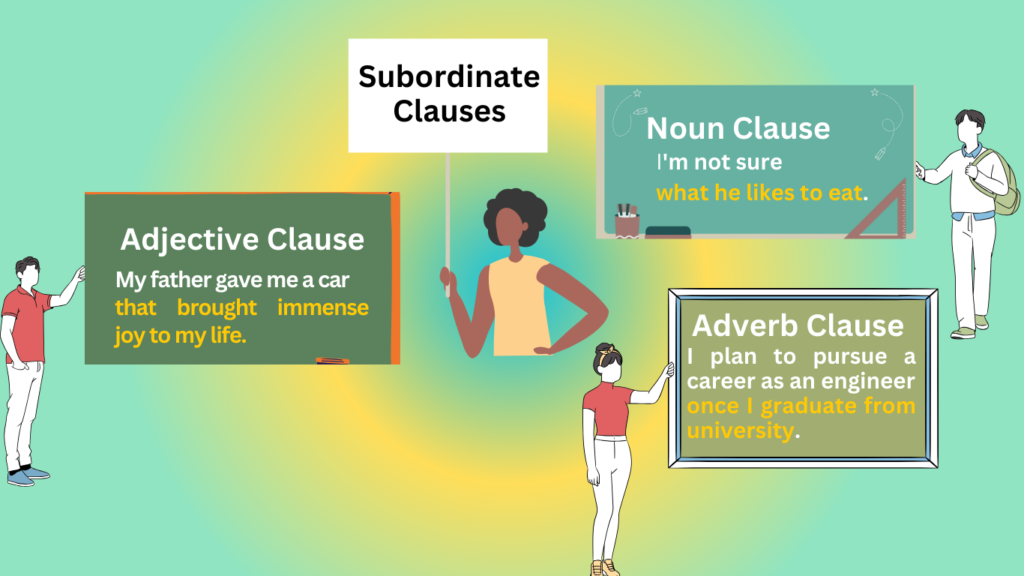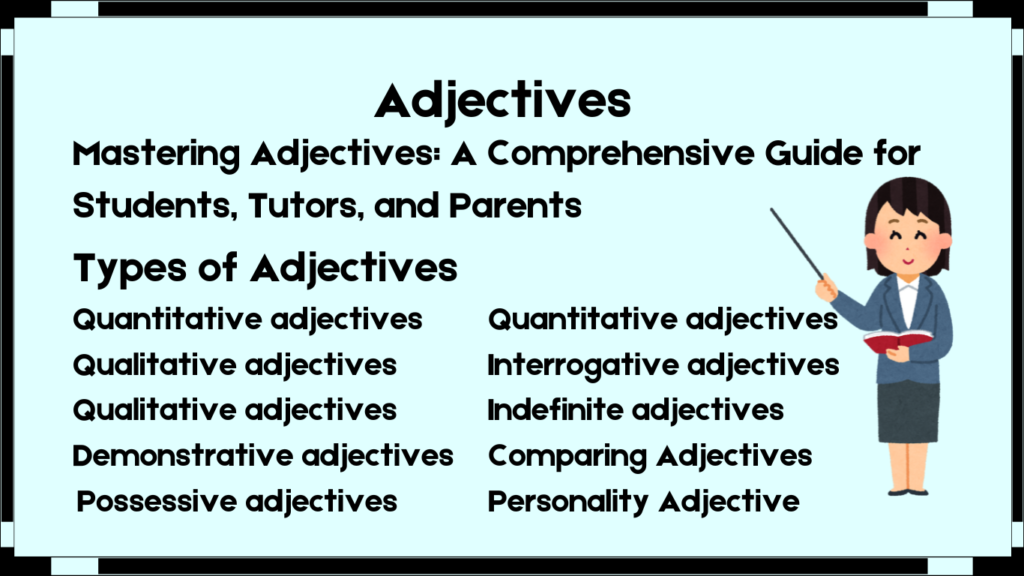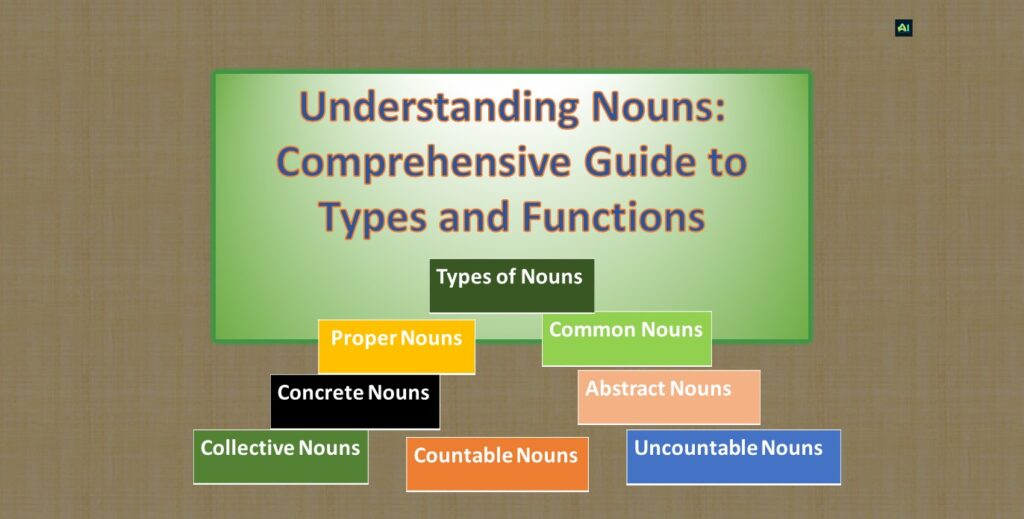The Essentials of Subordinate Clauses for Exam Preparation
Types of Subordinate Clauses are essential for exam preparation. They are a recurring topic in WAEC, NECO, and GCE exams. You’ve likely encountered a comprehension question asking, “What grammatical name is given to the above expression?” This refers to identifying the type of subordinate clause present in the passage. The task is to determine whether it’s a noun clause, adjective clause, or adverb clause. Mastering these clauses is essential, as they are frequently tested and play a crucial role in sentence structure and meaning.
Not only is learning the types of subordinate clauses essential for passing exams, but it also plays a crucial role in adding depth and detail to our sentences. These clauses, which cannot stand alone, provide additional information that complements the main clause. In this blog post, we’ll examine the various types of subordinate clauses, their functions, and examples to help you enhance your writing skills and answer comprehension questions involving grammatical names and functions in WAEC NECO GCE and other related exams.
What Are Subordinate Clauses?
Definition of Subordinate Clauses
A subordinate clause is a group of words that cannot stand alone as a complete sentence because it depends on a main clause for meaning. While it contains both a subject and a verb, it doesn’t express a full thought on its own. Subordinate clauses often start with subordinating conjunctions like “although,” “because,” “if,” “when,” and “while,” which link them to the main clause.
Importance of Subordinate Clauses
Subordinate clauses are essential for adding complexity and detail to your writing. They help clarify relationships between ideas, provide additional context, and make your writing more engaging and informative.
Characteristics of Subordinate Clauses
- They cannot stand alone.
- They are introduced by subordinating conjunctions.
- They add more details to the main clause.
Examples of Subordinate Clauses
-when I saw him
-Because he was busy
-Although I worked hard.
-Whose car was stolen.
-which he bought for me.
Identifying subordinate clauses
A subordinate clause can be positioned at the beginning of a sentence, at the end of a sentence, or between the main clause.
-At the beginning of a sentence (place a comma before the main clause)
- Although it was difficult, I tried my best.
- If he comes around, I will speak with him.
- When I was a child, I used to cry a lot.
-At the end of a sentence (No coma before the main clause)
- I tried my best although it was difficult.
- I will speak with him if he comes around.
- I used to cry a lot when I was a child.
-Between the main clause
- The pen which you bought for me has been stolen
- The burglar who was arrested by the police has escaped.
- The man whose house was evaded has been hospitalized.
Types of Subordinate Clauses
1. Adjective (Relative) Clauses
Definition of Adjective Clauses
Adjective clauses (relative clauses) modify nouns or pronouns. They are usually introduced by relative pronouns such as who, whom, whose, which, or that.
Characteristics of Adjective Clauses
– Modify nouns or pronouns.
– Begin with relative pronouns.
– Give more information about the noun or pronoun they modify.
– Answer the question “which? ”
Examples of Adjective Clauses
– The story tha he told me is fascinating.
– She is the professor who inspired me.
– I found the keys which you lost.
Identifying Adjective Clauses
If you find it difficult to identify adjective clauses follow this step.
- identify and isolate the main clause.
- identify the noun.
- The question that will come to mind is “which?”. If the subordinate clause answers the question then you have an adjective clause.
Let’s refer back to the sentence “The story” **tha he told me** is fascinating.” The main clause is “The story is fascinating.” The question that comes to mind is “which story is fascinating?” The subordinate clause “that he told me” answers the question. “that he told me” descrbes the noun “story”.
She is the professor. You would ask “which tprofessor?” The subordinate clause “who inspired me” answers the question. “who inspired me” modifies the noun “professor”.
Importance of Adjective Clauses
Adjective clauses are important for adding descriptive details to your sentences. They help to clarify and specify the nouns or pronouns, making your writing more precise and informative.
2. Adverb Clauses
Definition of Adverb Clauses
Adverb clauses modify verbs, adjectives, or other adverbs. They usually begin with subordinating conjunctions such as because, although, if, when, and while.
Characteristics of Adverb Clauses
– Modify verbs, adjectives, or other adverbs.
– Begin with subordinating conjunctions.
– Provide information about time, cause, condition, contrast, or manner.
-Answer the questions “when?”, “why?”, “where?”, and “how often?”
Examples of Adverb Clauses
– She sings **because she loves music**. (because tells why she sings.)
– We will go out **when the rain stops**. (“when” describes tme.)
– Although he was tired, he finished his homework.
Types of Adverb clause
– Adverb clause of manner describing how an action happened. Example: She walks **as if she were pregnant**.
-Adverb clause of time describing when something happened. Example: The burglar ran away **when he saw the police**
Adverb clause of place describing where an action took place. Example: You should hide a treasure **where no one can find it**.
Adverb clause of condition describing the condition under which something is to be done. Example: I will go to the garden **if the weather keeps good**.
Note: Adverb clause is very wild, so I will explore all the types with sufficient examples in a latter article.
Importance of Adverb Clauses
Adverb clauses are crucial for adding context and detail to your sentences. They help explain the reasons, conditions, times, and contrasts related to the main clause, making your writing more comprehensive and engaging.
3. Noun Clauses
Definition of Noun Clauses
Noun clauses function as nouns within the sentence. They can function as subjects, objects, or complements in a sentence. They frequently start with words like “that,” “what,” “why,” “whether,” and “how.”
Characteristics of Noun Clauses
– They function as nouns within the sentence.
– Noun clauses can function as subjects, objects, or complements.
– They Often begin with specific introductory words.
Answer the question “what?”
Examples of Noun Clauses
– “What she said was surprising.”
– “I don’t know **why he left**.”
– “The fact **that he returns late** troubles me.”
Importance of Noun Clauses
Noun clauses are essential for adding depth to your sentences by providing substantive content. They help to integrate complex ideas into your writing, enhancing clarity and coherence.
How to Use Subordinate Clauses Effectively
Combining Subordinate Clauses
Combining different types of subordinate clauses in your writing can add variety and depth. For example:
– “Although the weather was unfavourable (adverb clause), the team played the match that they had been preparing for (adjective clause).”
– “He said that he was late (noun clause) because of the traffic jam (adverb clause).”
Punctuation Rules
Proper punctuation is key when using subordinate clauses. Generally, use a comma when the subordinate clause precedes the main clause. For example:
– “Because it was raining, we stayed inside.”
When the subordinate clause follows the main clause, a comma is usually not needed. For example:
– “We stayed inside because it was raining.”
Enhancing Sentence Variety
Using a mix of different subordinate clauses can enhance sentence variety and readability. This approach keeps your writing dynamic and engaging, maintaining the reader’s interest.
Conclusion
Understanding the different types of subordinate clauses—adjective, adverb, and noun clauses—can significantly improve your writing skills. These clauses add detail, depth, and clarity to your sentences, making your writing more informative and engaging. By mastering the use of subordinate clauses, you’ll be able to convey complex ideas more effectively and enhance the overall quality of your writing.
Keep practicing, and soon you’ll be able to incorporate subordinate clauses seamlessly into your writing, creating richer and more nuanced sentences. Happy writing!



